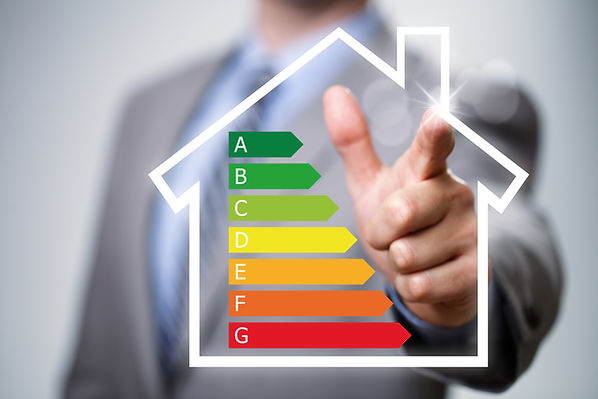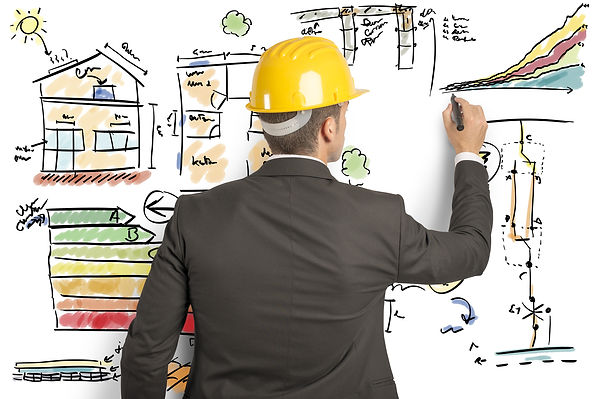01728 448711
info@sustbydesign.com


Part L - DSM - SBEM
All new buildings or those undergoing major refurbishment must meet minimum standards for carbon emissions and primary energy as laid out in Approved Document Part L: Conservation of Fuel and Power.
Energy modelling is an increasingly important part of the design process, particularly with recent changes to Part L of the Building Regulations. We work closely with the design team to establish a suitable strategy to meet energy and carbon targets and advise of any implications design changes may have in relation to energy performance. Using dynamc simulation modelling or SBEM we can provide documentation to satisfy Part L2 and produce Energy Performance Certificates.
Energy Performance Certificates
Our energy performance consulting services offer comprehensive assessments and recommendations to enhance the energy efficiency of buildings. We provide detailed insights and actionable strategies to optimize energy usage, improve indoor comfort, and achieve sustainability goals.


Thermal modelling
Thermal modelling can inform and optimise designs right from early inception through to building occupation. Utilising the principles of building physics, our computer software allows us to analyse building performance across a range of metrics including ventilation, indoor air quality (IAQ), heating and cooling loads, internal temperatures and daylighting. This is an essential tool for ensuring designs are integrated and take a holistic approach to building design beyond just energy performance.
Our dedicated team ensure wherever possible that passive design, cost effective measures are seamlessly integrated into construction projects, delivering optimal results in energy performance and environmental impact.
Carbon reduction
As a registered CIBSE Low Carbon Consultant, we have over fifteen years of experience of carrying out energy surveys and proposing energy and carbon reduction strategies on individual buildings and across building portfolios. We carry out investment grade audits for the purposes of Salix funding and private investment and to assess the business case of proposals on behalf of organisations. One example of this is Comberton Village College, where Sustainability By Design carried out a review of a proposed low carbon heat network on behalf of the board of trustees and which now has the largest ground source heat pump network of any secondary school in the UK.


Green Building Certification
As advocates of sustainable construction practices, we assist our clients in obtaining green building certifications such as LEED and BREEAM. Our team guides clients through the certification process, ensuring compliance with environmental standards and recognition for their commitment to sustainable building practices.
We are one of only a handful of UK organisations to hold accreditation with the Living Building Challenge, widely regarded as the world leading standard for regenerative building.
Renewable Energy Fasibility
Increasingly, new developments are required to demonstrate that a percentage of their energy use will be met by on site renewable technology. Whether this is to meet planning requirements or satisfy BREEAM criteria, we can undertake a comprehensive feasibility study to determine the best strategy and produce the documentation required to satisfy both planning and the criteria for BREEAM credit Ene 5.
All of our renewable feasibility studies will cover as a minimum:
• Energy generated from LZC energy source per year
• Payback
• Land use
• Local Planning Criteria
• Noise
• Feasibility of exporting heat / electricity from the system
• Life cycle cost / life cycle impact of the potential specifications in terms of carbon emissions
• Any available grants
• All technologies appropriate to the site and energy demand of the development
• Reasons for excluding other technologies.
Where we have undertaken the SBEM calculations for a development we will already have been able to offer advice to minimise energy consumption, thereby reducing the size of renewable installation required to meet a given percentage of energy demand or CO2 emissions. Our team are able to offer expert advice with regards to funding mechanisms and can produce detailed financial analysis.


London Plan applications
Developments within London face additional requirements above and beyond those of Building Regulations alone. We can advise you on how to navigate these additional requirements and come up with a comprehensive energy and sustainability strategy whether your project is a commercial, residential or mixed use development.
Once planning has been approved, we can provide you with a dedicated consultant to see you right through the detailed design and construction process. We can act as a client representative on your behalf to ensure your project stays on track and all of your energy performance and sustainability goals are met.
Planning and sustainability strategy
The UK planning system is not renowned for being a straightforward process to navigate. Even more so when sustainability is taken into consideration as there is a plethora of confusing (often conflicting) guidance and requirements which vary one local authority to another.
We can wade through all of the technical jargon and give you a clear plan of what you need to do and when, in a language you can understand.


Part O Overheating Analysis
A relative newcomer to Building Regulations, Part O addresses the risk of overheating in new dwellings. We carry out assessments using dynamic simulation modelling for individual houses and multi-residential apartment blocks.
Where the development is mixed use we can combine this with other overheating assessments such as CIBSE TM52 or BB101 to ensure all spaces are not at risk of overheating during the summer months.